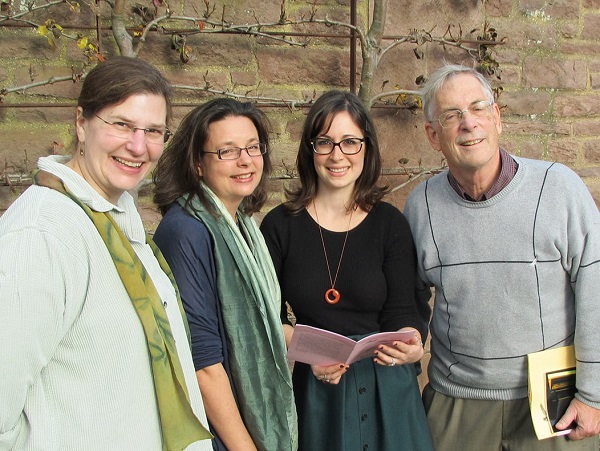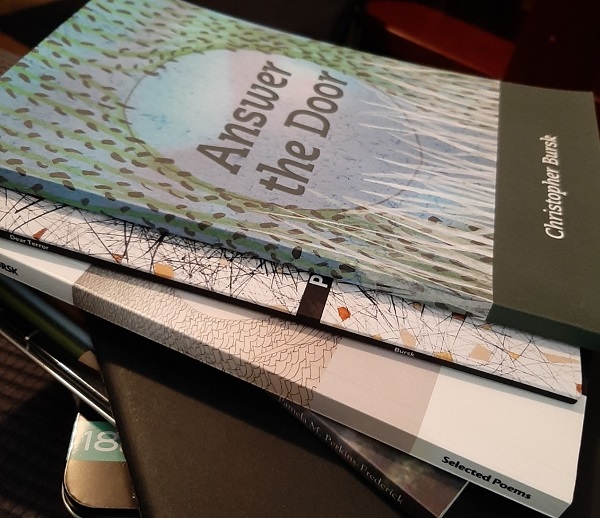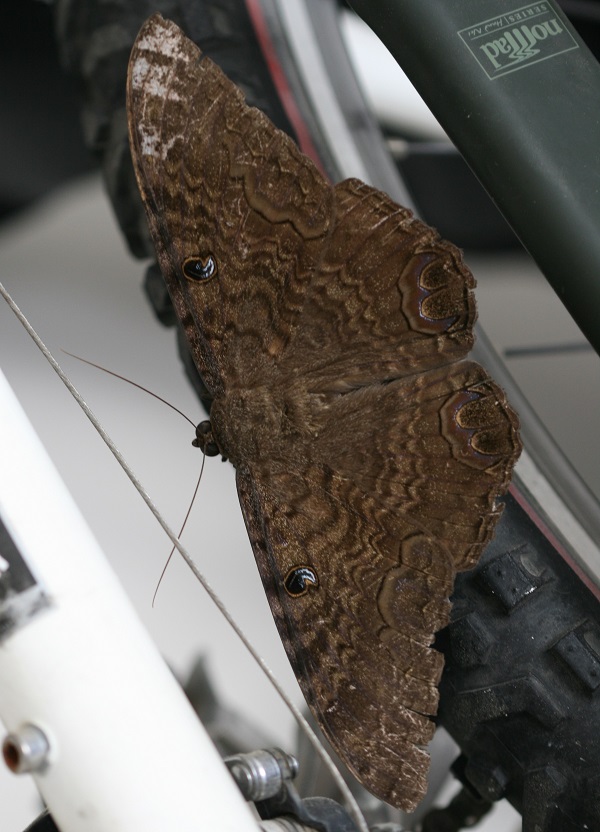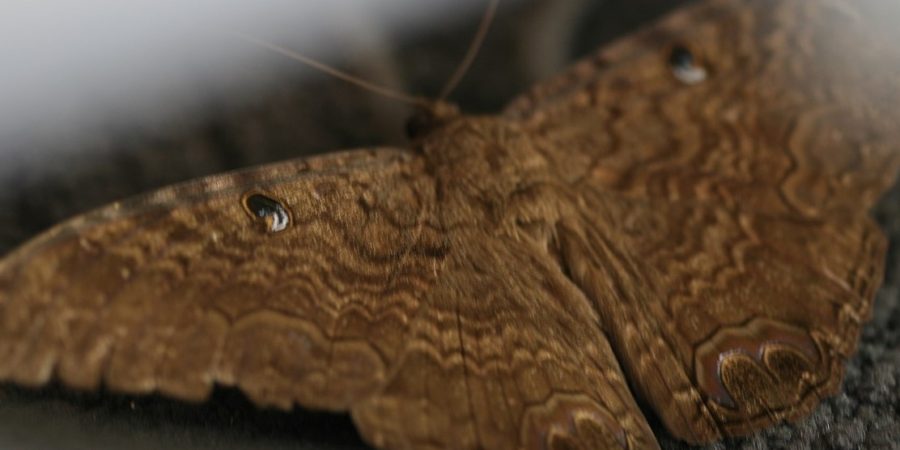One unexpected bonus to the pandemic forcing us all to hunker down and do everything online from home for more than a year was that I had the chance to attend my old poetry workshop via Zoom. Before we moved from Pennsylvania back to Colorado seven years ago, I used to participate in an annual poetry masters workshop hosted by Professor Christopher Bursk at Bucks County Community College every spring semester. You didn’t need to be a student at the college to attend; you just needed to want to write poetry and to be agreeable to exploring writing at a more advanced level. Chris hosted this workshop out of the love of both poetry and teaching. I also suspect (or someone once told me) that he liked doing the workshop every year because it let him explore poetry, writing, philosophy, art, and all the different things that make up a writing life with a group of people who also wanted to delve more deeply into these things. Teaching undergraduates at a community college didn’t always afford that kind of opportunity.
I attended the workshop for several years while I lived in Pennsylvania, and when my husband was transferred back to Colorado and we all had to pick up and move, Chris simply started mailing me large packets of material every January. I would read through everything and do as many of the writing assignments as I could and email my poems to him and he’d mark them up and send them back to me. It wasn’t quite the same as being there live and listening to him lecture and listening to everyone else’s thoughts and writing, but it was better than nothing. It was, I suspect, as close as I’ll ever come to attending a low residency MFA program. In fact, the work I did with Chris and the regular workshop attendees, the feedback I got from that experience over nearly a ten year period, will most likely far surpass what I might have gained from shelling out twenty-five grand for a two-year program that would, at best, qualify me to maybe become an adjunct professor and make less money than I currently make these days as a technical writer/editor.
But, I digress.
Just after the new year, after several months of being cooped up in the house with my husband (who took over the dining room for a home office) and my daughters (one a sophomore in college, one a senior in high school but doing her entire year dual-enrolled at the community college, and both not exactly thrilled at having to attend college classes online), and with no real end to the quarantine in sight, I happened to hear from a friend from the poetry workshop, who told me that Chris was hosting the class via Zoom this year and suggested I jump in. I emailed Chris right away and he sent me the information, and just like that, I got to spend four months listening to Chris lecture once more and to talk about poetry with old friends.
It was, I think, the only silver lining to the pandemic for me. Just to see everyone’s faces and hear their voices was such a comfort, and it was so great to watch Chris in action again, only this time with his attic home office in the background, which was almost as cluttered as the one he had on campus. For a 78-year-old (he never did seem to want to retire from teaching), he managed the electronics pretty well, breaking us out into small discussion groups with ease, popping in to each one to see how we were doing with our small in-class assignments, posting Word documents onto the screen for us to read through as a group, etc. But even when he fumbled, it didn’t matter, because we were just glad to be able to see and hear each other, to work together, in spite of the pandemic. In May, during the final Zoom class, Chris said all the usual things: be sure to email poems to him during the summer, stay in touch, and watch for his emails because he was planning on doing more online classes next year, which I was thrilled to hear.

Right after that, I took my just-graduated high school senior to the desert for a writing retreat. I usually attend one of those every May with a small group of writers in Colorado loosely affiliated with a local college here, and of course the pandemic shut that retreat down this year too. But since my daughter and I had had our vaccinations, we decided to go anyway. I booked us a last minute VRBO and we went for a long weekend. When I got back I emailed Chris some of the poems I’d written on that trip, and oddly, he never replied. I thought it was strange, because he always sent feedback, and fairly quickly at that, but I told myself not to worry about it, to give him a break. Lots of people send him poems all the time. Maybe he took off to the shore for a couple of weeks. If anyone deserved a long vacation, it was him.
In the next few weeks, life got in the way of writing, as it often does. We were expanding our garden a great deal. We were having the exterior of our house painted and were busy choosing and working with a contractor. We had some graduation dinners and events planned for our youngest that required attention and time. Work was busy. Etc. Before I knew it, we were past mid-June and it was time to take a long-planned camping trip in the Purgatoire Wilderness. We like to get away as much as we can, and to places where we can literally unplug from the world. The only Internet access we had during that week came when we were driving into town for supplies, and when my email downloaded and I scrolled through it quickly, expecting it to be mostly junk, this terrible news managed to make it through:
Chris had gone into the hospital for a routine Pacemaker upgrade right after the Zoom class ended, and during that visit, the doctors found that he had pneumonia and admitted him. Not long after that, further testing revealed he had interstitial lung disease, which I guess was quite advanced, because he was now starting Hospice care at home. The email implored everyone to NOT try to call or stop by because his family would not be able to handle so many visitors.
I read that email with a large and loud gasp that made my husband ask immediately if the kids were okay which I quickly assured him they were and then told him what was going on. When we got back to our camp site, I sat down on the little sofa in our camper and cried. We were only halfway through our trip, but my husband asked if I wanted to leave early. I said no. There wasn’t anything I could do, even if we went home. So we stayed in the mountains and hiked through high alpine forests and watched stars at night, and drank coffee and cooked sausages over morning campfires, and read books and took pictures of wildflowers and caught fish in a nearby lake, and I thought about trying to write about all of that, but just couldn’t quite make myself sit down to it. We got home late on a Saturday afternoon and I went out and bought a card and spent the next day writing Chris a letter to thank him for making me the writer I am today. I mailed it first thing Monday morning, but he died that same day, on June 21, so my letter didn’t make it in time. But even if it had, chances are slim that he would have read it. It was less than a month from the time of his diagnosis to the day he died, and in those final weeks he was surely focused on his wife and children and grandchildren, not some enormous pile of cards from students. I suppose the letters we write to old friends and teachers when we hear they’re on their deathbeds are really written for ourselves, but I think they’re still important letters to write. And to send, even if they don’t get read.
My heart aches so much at the thought that Chris is gone from this world. That I’ll never again get an email or a letter with his scrawling handwriting, always cheerfully started with: “Hooray! More Lara poems!!!” followed by thoughtful and encouraging critique of whatever I’d sent. That I’ll never get the chance to see him in person again, even through Zoom, where he’d laugh and exclaim over lines from Endymion or whatever else had caught his attention that month, that funny way he had of cursing and grabbing his head with his hands when he was particularly bowled over by someone’s thoughts or work. The way he made us all see the world, and the poetry that fills it and describes it and defines it, a little bit better. I’ve been re-reading his books, a couple of which he signed for me before I had to move away, and it helps a great deal to hear his voice through his writing. He published more than a dozen books, and one final book has just been released, unexpectedly posthumously, which I have already ordered and anxiously await. I’ve also (pack rat that I am) saved pretty much all of the course material from all the workshops he gave that I attended. There was always so much material that I never managed to get through all of it during the actual semester. I’ll be able to go back through that stuff and find the old assignments I missed and try them out. So, in a way, I’ll try to keep on working with Chris, even now. It pales in comparison to working with Chris live and in person, but I’ll take what I can get, and be glad of anything that will keep his memory alive for me. It’s what he would expect of all of us who knew and worked with him: to keep writing no matter what.

A few days after Chris died, my husband and I were moving a newly built hoop cover for one of the garden beds out of the garage and into the yard when, out of the corner of my eye, I saw something large and grayish flutter into the garage and immediately hide itself away in a high shadowy corner. “Whoa, a huge butterfly or something just flew in here.” I said to my husband, “Did you see it?” He said he hadn’t and I told him to watch out and then made a note to mention it to the kids, because it looked big enough to be a bat and at some point, if it didn’t leave, we were going to have to deal with it. Then my brain checked in to remind me once more that Chris was dead and that my letter didn’t get there in time, and I became morosely preoccupied with those thoughts and promptly forgot all about The Thing In The Garage.
A few days after that, I was out in the driveway admiring the new sage green color of my house, as the painters were finally finishing the last of the trim outside the garage and putting their ladders away and getting ready to leave, when an enormous insect, mostly a mottled brown but still strikingly beautiful, fluttered out from the garage. It actually knocked into me and then fell to the ground, stunned by the impact, where it immediately began crawling toward the shade inside the garage. I realized this must be the thing that flew in a few days prior. It looked more like a moth than a butterfly upon closer inspection and, mostly out of habit, I went inside for my camera to document it (once a homeschooling mom, always a homeschooling mom) and then searched online to identify it.
It was a Black Witch Moth, also sometimes known as “the bat moth,” male, probably in the process of migrating. They are the largest moths in North America, with wingspans that can reach more than seven inches. Here’s a picture of it perched on a bike next to the door that leads into the house:

Once I’d identified it, I spent a few minutes reading the related articles that had popped up. One of them was a brief summary of all the folklore surrounding these moths. Most of the lore was negative: these moths are associated with death. If one flies into your house, someone you knew was going to die soon. It’s the embodiment of lost souls. It’s known as the mourning moth, or the sorrow moth. In the novel, The Silence of the Lambs, the pupae of the black witch moth is what Buffalo Bill put in the mouths of his victims. That sort of thing. But then I read the following:
On a happier note, if the black witch appears before you after someone has died, it represents the soul of the person returning to bid you farewell.
And look, I’m not really a superstitious person at all, but it was just weird. That moth lived in my garage for several days. Every time I went in there, I’d see it perched somewhere: on shelves or walls or bikes or whatnot. Sometimes it would flutter toward me as if trying to land on me. (More folklore said that if it landed on you, you might become rich. No, I didn’t rush out and buy a Powerball ticket. Maybe I should have.) I told my family about the moth, and about the folklore surrounding it, and we all had a good, albeit tearful, laugh over it. None of us had ever come across a Black Witch Moth before, and how weird was it that three days after Chris died we had one move in? For the next few days, whenever anyone had to go somewhere, one of us would inevitably call out or text, half jokingly: “Just be careful to not run over Chris’ soul when you’re backing out, okay?”
(And even more serendipitously and interestingly, the last poem I ever sent to Chris for his critique was from an assignment he’d given us that asked us to write a poem that starts with: These days, my soul likes to hang out at….)
All folklore aside, I did begin to worry about the moth being stuck inside for too long. I tried leaving the garage door open in the evenings to see if it was just waiting for the dark to make its exit, and (yes, I’ll admit it) I even talked to it briefly whenever I saw it, thanking it for stopping by and encouraging it to move on (just in case), but a week or so later, my husband told me that the moth had died in the garage and he had disposed of it. He spoke apologetically, as if almost afraid to give me the news, but I told him it was okay. Maybe the moth was sick or injured in some way (the end of one wing definitely had some pale discoloration) and couldn’t continue his migration. Lots of insects don’t make it all the way. It’s not uncommon. But I was glad to have seen him, even it it means nothing. Maybe someday I’ll write a poem about him. Chris would have loved that, but more importantly, Chris would have believed in the Black Witch Moth.
And if Chris would have believed in it, then I think we all should too.
